Ship's Log Summer School Sustainable Landscapes - The Wadden experience 2024
The Rudolf Agricola School offers various annual summer schools focused on enhancing students' knowledge of sustainable development. One such program is Sustainable Landscapes - The Wadden Experience, a five-day sailing trip organized by Wander Jager. It combines lectures from leading experts with hands-on exploration of themes like cultural heritage, coastal tourism, landscape stewardship, regional food production, and sustainable entrepreneurship. The following logbook from this year's trip provides a glimpse of what the program has to offer.
On Monday August 26 we hoisted the sails of the Willem Jacob, and our skipper Tsjerk and shipmate Magchiel set course to Terschelling, the first island to visit. A firm breeze with a squall brought us the last drops of rain, and the rest of the week we had wonderful weather
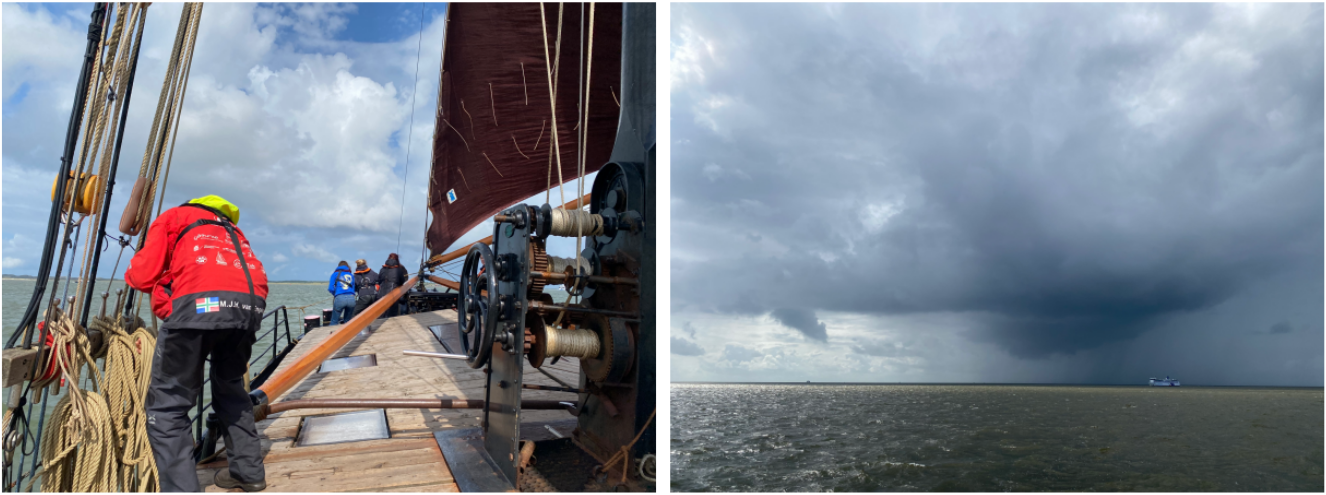
On Terschelling we made a walk through the village with its century’s old lighthouse, the “Brandaris”, and observed and discussed the impact of the new water management on the island. Following that, we enjoyed a great dinner prepared by Meta.
Tuesday we kicked of with a morning lecture, reflecting on the history of the Netherlands regarding land and water management, and changes of perspectives from protecting against the forces of nature towards working together with nature. The last ice-age was our starting point, reflecting on climate change and the emergence of the North Sea and the islands.
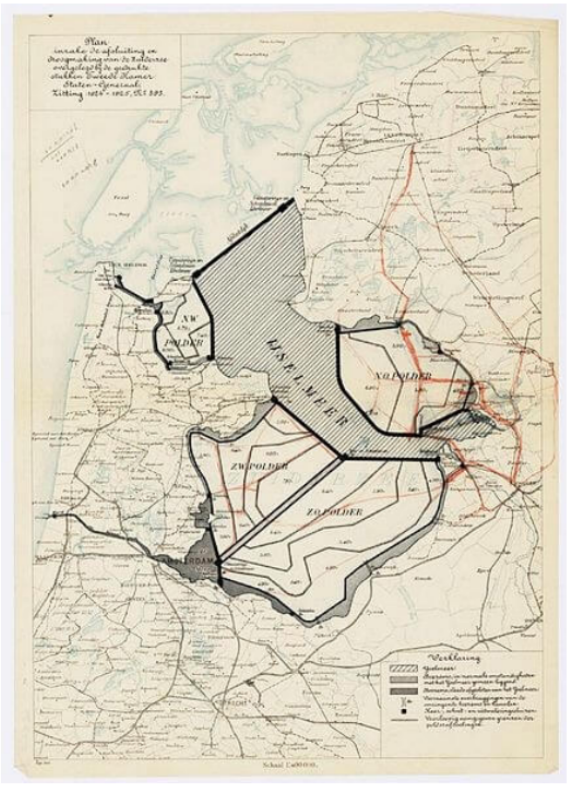
Following the lecture, we made a cycling tour over the island. On the remains of the Atlantik Wall we discussed the mistakes being made in science, and the importance of critical thinking in complex socio-ecological systems, and modesty regarding our knowledge of them.
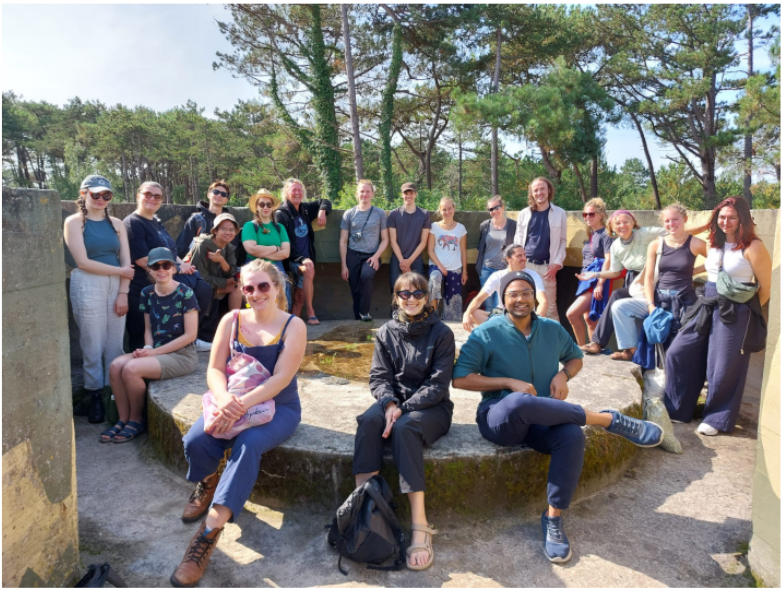
We continued with our cycling tour, visiting a historical marshland where people caught sediment from the sea in the traditional way, thus growing new land. This man-made area is very attractive for birds, and a fundamental discussion arose on humanities role and responsibility as eco-system engineers. After a great swim in the North Sea we cycled back to the ship, passing by several projects aimed at supporting nature.
Wednesday we left early to set the ship dry and have a walk on the seafloor.
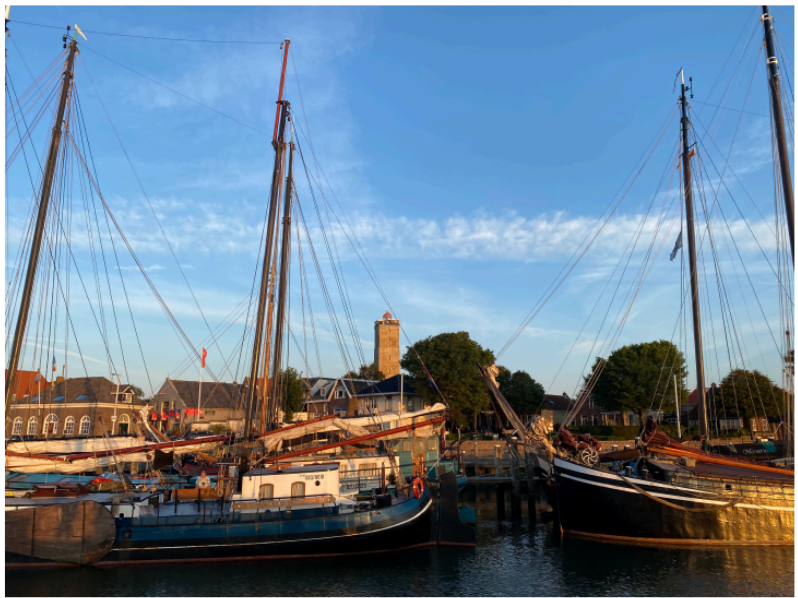
During the walk on the seafloor, we observed and discussed the complexities of the ecosystem of the Waddensea, and how life adjusts in continuously changing circumstances.
While waiting for the tide we had a lecture on socio-ecological complexity, and when we were floating again, we set sail for Ameland.
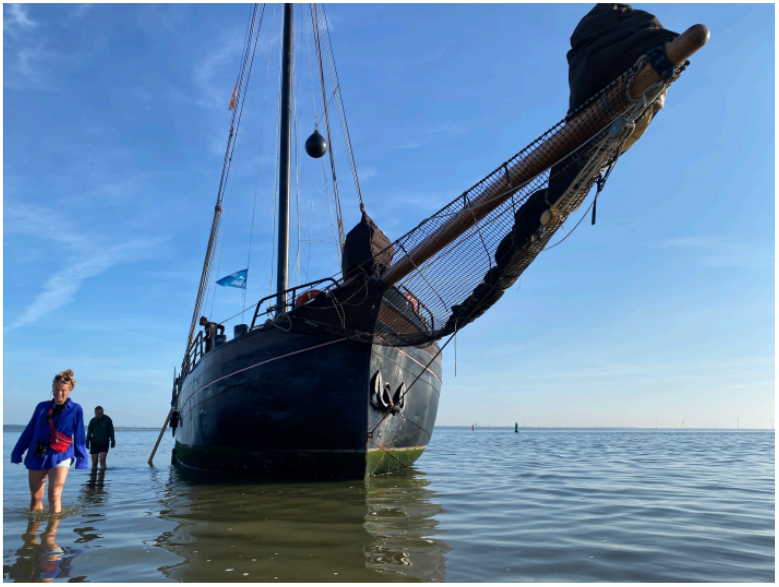
When sailing to Ameland, we passed a sand bank where a group of seals was hanging out, always a very special moment to meet these beautiful animals.
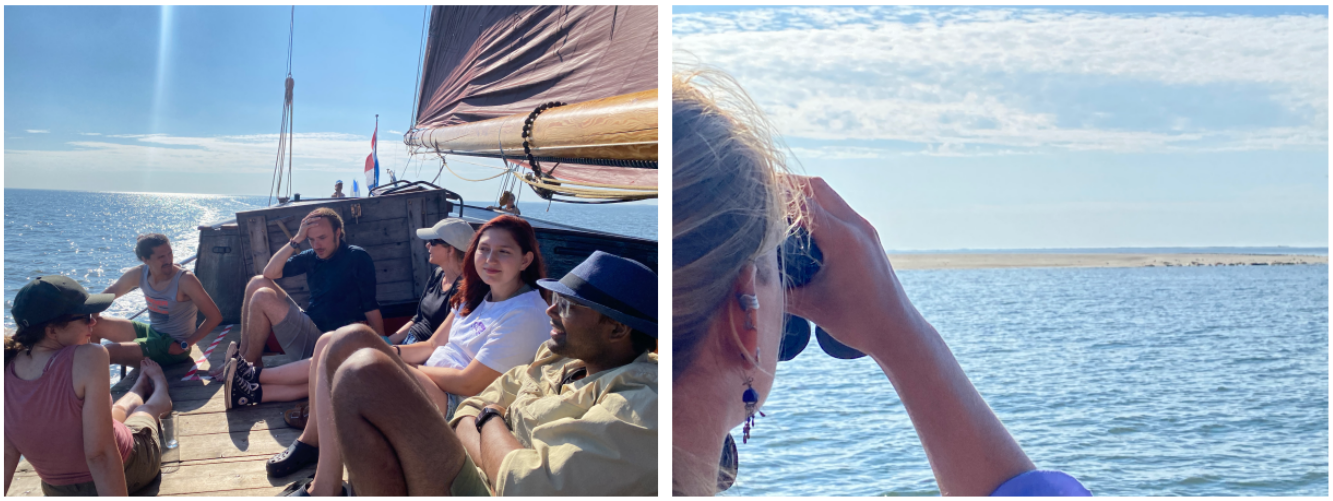
Thursday we had a morning lecture going deeper into the principles of complexity in socio ecological systems, addressing cascading effects, tipping-points and agent based models of transitional dynamics. Following that we made a cycling tour where we encountered the whaling history of the island, a school that uses local wood and solar panels for producing energy, and of course we had a nice swim in the North Sea. At four in the afternoon, we set sail for our last island, Schiermonnikoog, where we arrived in the evening. Here we had a discussion on the ecological impacts of windfarms on the North Sea, which are larger than we often are aware of, as we are creatures of the land. Yet a long-term perspective is needed in reflecting on the multiple consequences of building large wind farms in ecosystems at sea.
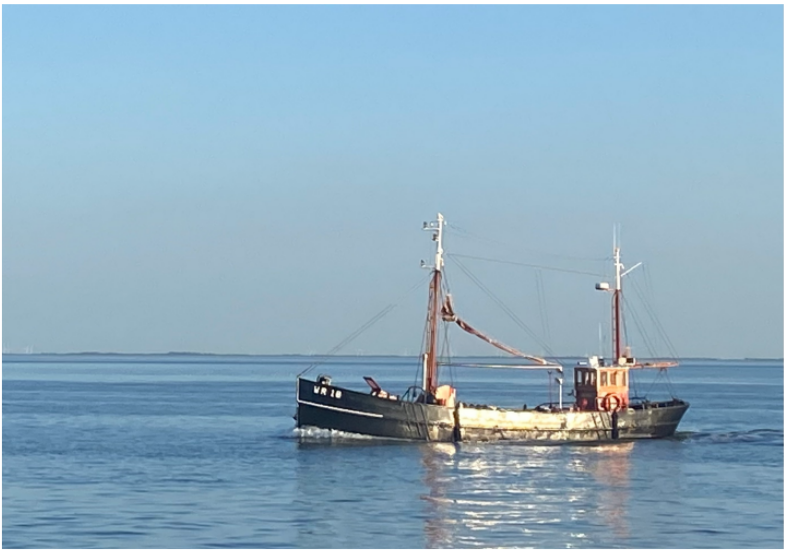
Here we had a nice drink at the historical Hotel van der Werff, and the night was closed traditionally in the famous Tox bar.
Friday we had a long walk on Schiermonnikoog, where we could see how the landscape had developed since it was inhabited by monks (Schiermonnikoog translates as the isle of the grey monks). As we had a class on the socio-ecological dynamics of Schiermonnikoog by Daniela and Daniella, we could now actually see that the farmers changed their practices by having fewer cows of a different breed that could graze on more natural grass that was not depending on artificial (oil produced) fertilizer. And by producing their own cheese, a serious reduction in live-stock did not really affect their income, which makes it an interesting business case. Lastly, we visited the “Tuin naast de Branding”, where Janneke showed us how she successfully started a small-scale vegetable farm, that is contributing to producing healthy and tasty food, connecting with the community on the island. After having had discussions throughout the week on the negative impacts of the bio-industry on the life of pigs and emissions, meeting the cheerful pigs on Janneke’s farm gave us a good experience of how to emotionally connect with nature and practice kindness in our interactions with other species.
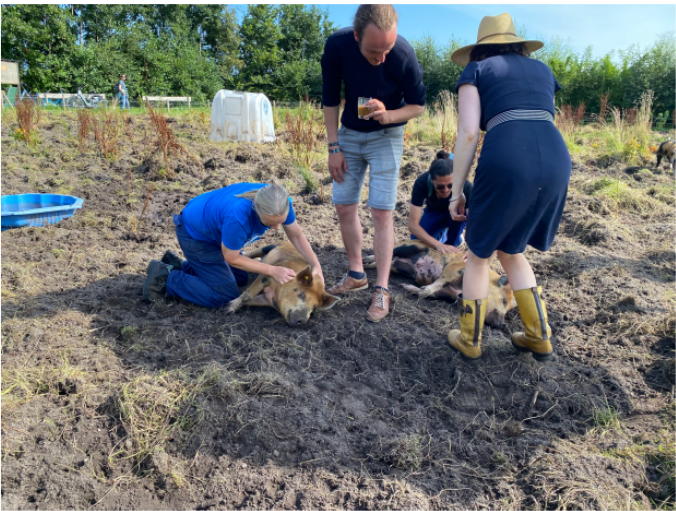
We closed the week with relaxed sailing towards Lauwersoog, on the way saying goodbye to another group of seals that were enjoying the sun on a sandbank. During the week, we learned and experienced that socio-ecological systems can display complex dynamics and cascading effects, and that good intentions do not suffice in developing policy. A profound understanding of the possible dynamics, and a careful monitoring of effects are needed to avoid situations where good intentions cause damage of nature. And ultimately, love for nature is essential to connect and be a part of nature instead of seeing it just as a resource to exploit.
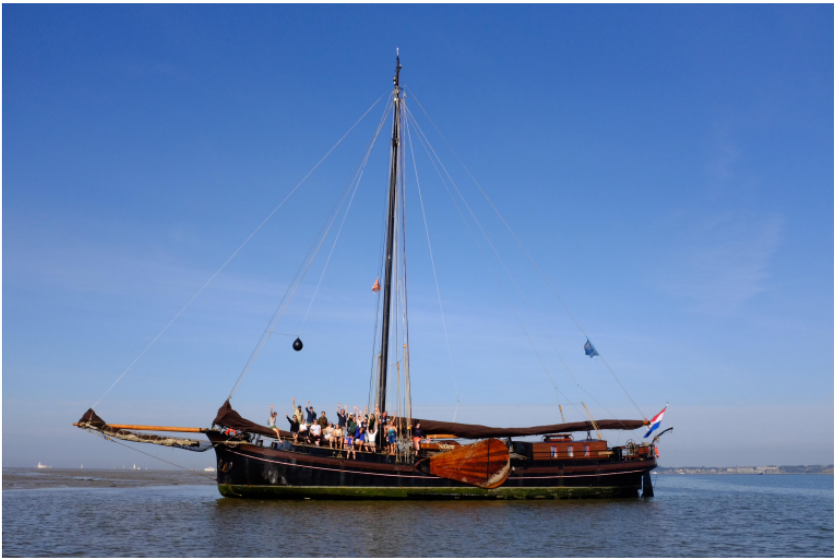
We are looking forward to a next edition!
|
For more info on summer and winter schools at the University of Groningen, see the summer and winter school webpage
|
|
For more information on the Willem Jacob, see: https://willemjacob.nl
|
More news
-
15 September 2025
Successful visit to the UG by Rector of Institut Teknologi Bandung

